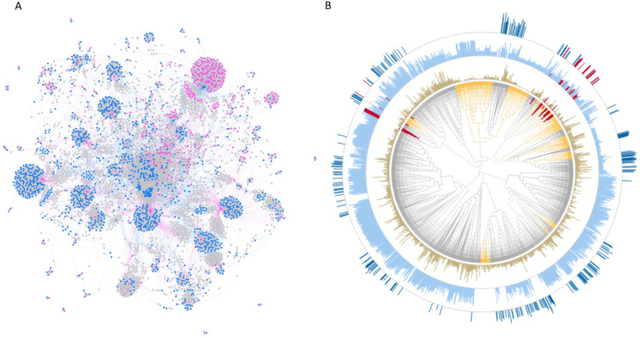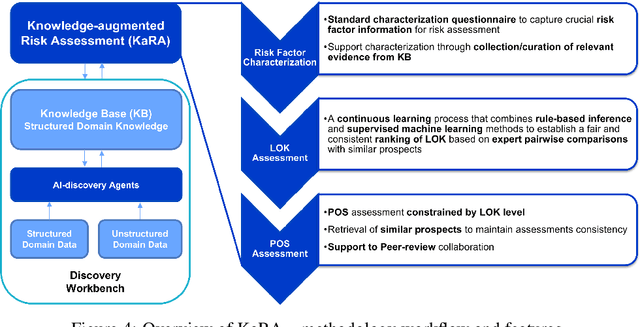Carlos Raoni Mendes
Knowledge-augmented Risk Assessment (KaRA): a hybrid-intelligence framework for supporting knowledge-intensive risk assessment of prospect candidates
Mar 09, 2023



Abstract:Evaluating the potential of a prospective candidate is a common task in multiple decision-making processes in different industries. We refer to a prospect as something or someone that could potentially produce positive results in a given context, e.g., an area where an oil company could find oil, a compound that, when synthesized, results in a material with required properties, and so on. In many contexts, assessing the Probability of Success (PoS) of prospects heavily depends on experts' knowledge, often leading to biased and inconsistent assessments. We have developed the framework named KARA (Knowledge-augmented Risk Assessment) to address these issues. It combines multiple AI techniques that consider SMEs (Subject Matter Experts) feedback on top of a structured domain knowledge-base to support risk assessment processes of prospect candidates in knowledge-intensive contexts.
Toward Human-AI Co-creation to Accelerate Material Discovery
Nov 05, 2022



Abstract:There is an increasing need in our society to achieve faster advances in Science to tackle urgent problems, such as climate changes, environmental hazards, sustainable energy systems, pandemics, among others. In certain domains like chemistry, scientific discovery carries the extra burden of assessing risks of the proposed novel solutions before moving to the experimental stage. Despite several recent advances in Machine Learning and AI to address some of these challenges, there is still a gap in technologies to support end-to-end discovery applications, integrating the myriad of available technologies into a coherent, orchestrated, yet flexible discovery process. Such applications need to handle complex knowledge management at scale, enabling knowledge consumption and production in a timely and efficient way for subject matter experts (SMEs). Furthermore, the discovery of novel functional materials strongly relies on the development of exploration strategies in the chemical space. For instance, generative models have gained attention within the scientific community due to their ability to generate enormous volumes of novel molecules across material domains. These models exhibit extreme creativity that often translates in low viability of the generated candidates. In this work, we propose a workbench framework that aims at enabling the human-AI co-creation to reduce the time until the first discovery and the opportunity costs involved. This framework relies on a knowledge base with domain and process knowledge, and user-interaction components to acquire knowledge and advise the SMEs. Currently,the framework supports four main activities: generative modeling, dataset triage, molecule adjudication, and risk assessment.
 Add to Chrome
Add to Chrome Add to Firefox
Add to Firefox Add to Edge
Add to Edge